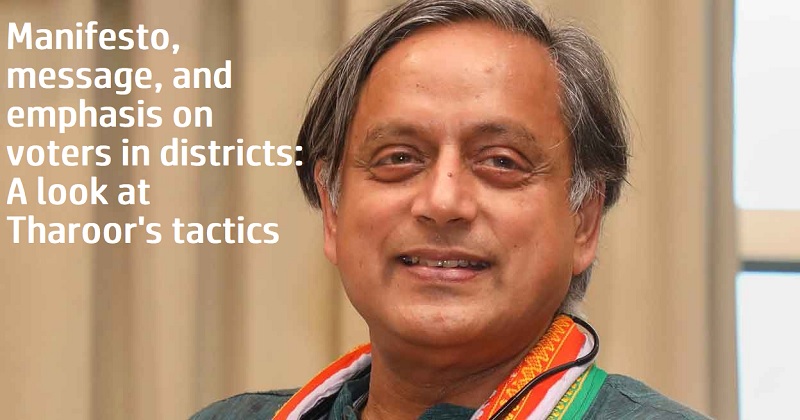
Despite facing up against the establishment-backed Mallikarjun Kharge in the race for the Congress presidential nomination, Shashi Tharoor is preparing a full-fledged campaign with the goal of garnering the most support possible for the internal elections on October 17.
On Friday, shortly after submitting his nominations, Tharoor published a text like a manifesto—apparently a first in the long history of the big old party’s internal elections. The following day, he began his campaign by going to Nagpur’s Deekshabhoomi monument, where B. R. Ambedkar and his supporters had embraced Buddhism on October 14, 1956. He paid respects on Mahatma Gandhi’s birth day on Sunday by going to the Sewagram Ashram in Maharashtra.
A discreet outreach effort is reportedly being planned by the former diplomat-turned-politician in addition to these overt actions, which aim to develop a narrative that will appeal to both the public and the Congress workers. The goal is to win over as many of the 9000 or so voting party delegates as possible.
To reach delegates in every state and spread his message, Tharoor will send out specialised teams. As he has already stated, the core of his message is to bring about a change in the party instead of maintaining the status quo. Even while he has insisted repeatedly that this is a friendly competition, he has constantly referred to his opponent, the 80-year-old Kharge, as a candidate of continuity.
Teams from Tharoor have already begun operating in Maharashtra and Uttar Pradesh. Priority one for the former Union minister will be to convince the delegates that he is not the dissident candidate they have been led to believe.
He would emphasise that while he is running for change, he is not against the Gandhi family as his key argument.
Each significant leader in every state will be individually engaged by Tharoor. However, it is discovered that a crucial tactic would be to sway district-level leaders, who account for the vast majority of the electorate. The decision to concentrate on this sector was made with the rationale that top state officials who are linked to the party’s high command are more likely to support Kharge.

Post Your Comments